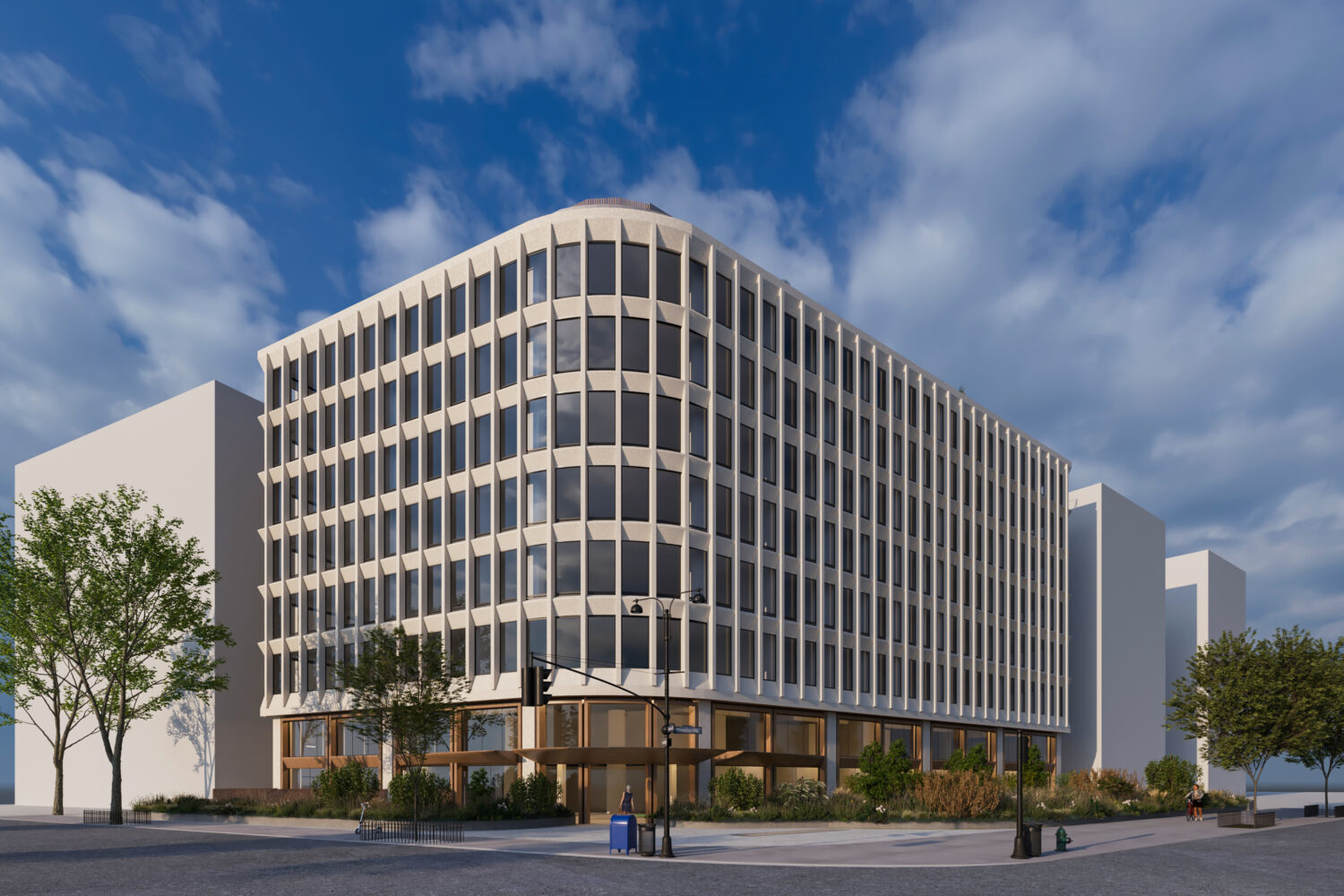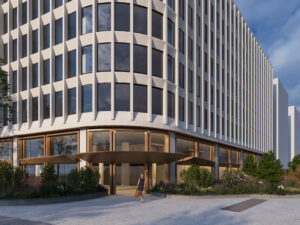News and Press
This Scott Circle office building was destined for the wrecking ball. Here’s why the owner changed its mind.
September 27, 2023

The owner of an obsolete Scott Circle office building seemingly destined for demolition changed its mind. And the environment may be better off for it.
Philadelphia-based National Real Estate Development LLC, a subsidiary of D.C.-based National Real Estate Advisors, filed plans with D.C. last month to convert the 114,0000-square-foot 1625 Massachusetts Ave. NW, former home of the Air Line Pilots Association International, into a 157-unit residential building.
“We did study knocking it down, keeping the garage and building something new on top, that would have been a better return but far more expensive,” Katie Hartley, the company’s director of development for the D.C. market, said in an interview. “But to minimize the carbon footprint, we felt it’s most prudent to have this building remain on that marquee corner, not to tear down perfectly good concrete just to put up more concrete.”

Indeed, plans drawn up by its design team, architecture firms Eric Colbert & Associates and New York’s DXA Group, envision retaining the building’s vertical slatted facade while bringing more of a green ground floor with some walk-up units. The developer also considered retail there, though zoning doesn’t allow it.
National Real Estate is behind several big ground-up developments in D.C. — including the The Hepburn adjacent to the Washington Hilton co-developed with Lowe, as well as the The Stacks at Buzzard Point, which promises over 2,000 residences.
National Real Estate has tackled office-to-residential conversions before, including one near the East Market in Philadelphia, but it’s not aiming to make this a regular thing. Scott Circle as a conversion was feasible given its corner location and efficient floor plates, plus by-right zoning — though it is in a historic district that requires Historic Preservation Review Board approval.
“The market is very challenging right now with where interest rates are, construction pricing going up steadily,” Hartley said. “We’re starting to see more optimism, but this is a unique one. We need to put some capital in the building, but if we keep it as an office we need new tenants. Money to get new Class B tenants is much riskier than money to convert to a residential building in an area that has decades of go-forward growth and demand. This was the prudent pivot.”
The project could be underway by the fourth quarter of 2024 if it obtains the necessary approvals.
“This is a good example of National having a long-term investment strategy,” Hartley said. “That can include re-imagining assets to fit the community. What we’ve heard in initial community meetings is that they love getting more residents who aren’t just leaving at the end of the day, but staying and benefiting the neighborhood. It’s a fantastic neighborhood with good restaurants and businesses.”
